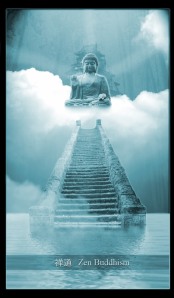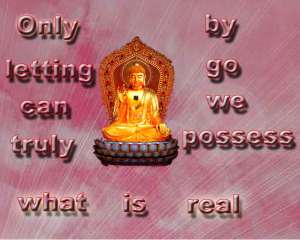
There’s a “Dummies’ Guide” for many other things. Why not to the hallowed, reverential, sacred, and elusive state of enlightenment?
First off, a definition of enlightenment:
Per Wikipedia: enlightenment refers to the “full comprehension of a situation”. It is commonly used to denote the Age of Enlightenment but today is often used in Western cultures (such as the U.S.) in a religious context. It’s a translation of several Buddhist concepts, most notably the following:
Satori: In Zen Buddhism, it refers to kenshō: “seeing into one’s true nature”.
Bodhi: In Buddhism, it is the understanding by a Buddha about THE TRUE NATURE OF THINGS. It’s normally translated into “enlightenment” in English and means to be awakened. Bodhi is the knowledge of the causal mechanism by which beings incarnate into material (physical) form and experience suffering.
Okay, so this newsletter is, like every publication, especially newsletters and blogs, a journey. In a journey, one moves along, the landscape constantly changes. After awhile, there will be times when the landscape you experience seems very much like the landscape you previously encountered. And it may well be similar but it’s never identical. Your egocentric, limited, unenlightened mind may be telling you it’s the same but don’t be fooled. It’s really not.
And that’s one of the keys to experiencing a period of enlightenment: You become aware of the true nature of each situation on your life’s journey instead of relying on your intellectual, rational and limited mind to tell you.
Awareness of the true nature of things requires you to dissolve the illusion of distance or separation between the observer (you) and what is being observed (the particular landscape you observe at any given time along your journey). A key to becoming aware of the true nature of things is to practice meditation.
Meditation is normally practiced by sitting alone in a quiet, fairly dark room. The goals are (in my opinion) threefold:
-
QUIET YOUR EGO’S MISLEADING, HUNGRY, DISTRACTING VOICE: This is done by thinking less and just being present in your quietness. By not thinking as much, that allows you to focus on your breath, which is often taken for granted but if one become aware of the breath, it becomes obvious the breath doesn’t come from anything the personal ‘you” does. It’s a gift from God, however one defines that term. No one knows where the breath comes from or how exactly the breath keeps our bodies alive but it does so in a most magical, mysterious and lovely way.
2. LOSE ATTACHMENTS: Per the Buddha, the primary cause of most human beings’ suffering is the attachment to desire. People with an egocentric mindset wrongly believe they can possess experiences (sexual gratification, excitement over achieving a goal, enjoying a really well-done movie or book, etc.) and material goods (cars, houses, entertainment systems, food, drink, and so on). By going beyond the personal “me” and contemplating the true nature of what it means to be a human being, you gradually comprehend the true nature of things, which includes yourself.
3. Ari Goldfield, a Buddhist teacher at Wisdom Sun and translator of Stars of Wisdom, summarizes these two aspects of “emptiness” as follows:
The first meaning of emptiness is called “emptiness of essence,” which means that phenomena [that we experience] have no inherent nature by themselves.” The second is called “emptiness in the context of Buddha Nature,” which sees emptiness as endowed with qualities of awakened mind like wisdom, bliss, compassion, clarity, and courage. Ultimate reality is the union of both emptinesses.
CONCLUSION
Even though the idea is simple, it’s amazingly challenging to not only become but continue to be enlightened. That’s because one can never banish the unenlightened tendency. It’s not like one day you achieve enlightenment and then boom, that’s it. You’re automatically the Zen Buddhist Master from then on. No, the “we’re all on our own spiritual island” mentality is a persistent illusion that’s easy to buy into IF we rely on strictly surface appearances that our rational, scientific self uses as a basis to interpret reality.
And it’s important to note that, on one level, in a way, the separateness view – you and I and everyone else in the universe have an inner, permanent identity that’s separate from everyone and everything else – is true. But it’s only true if you buy into the delusion. It’s the best, and most destructive, example of the self-fulfilling prophecy, in the history of the world.
So be careful what you believe. It is the most important determiner of the quality of your journey on The Road of Life.


